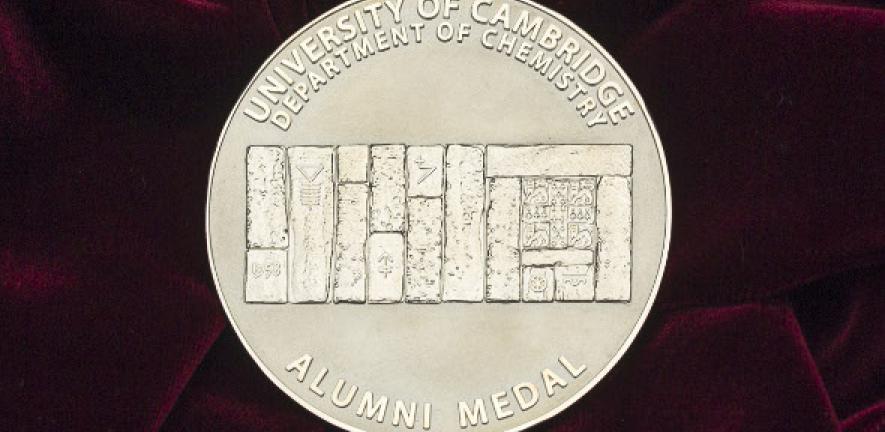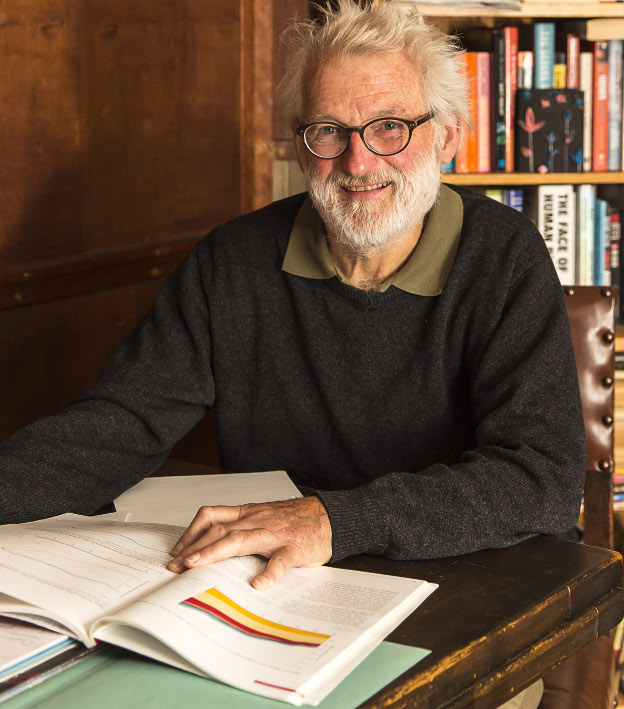

The medal is presented “for service to the community that has brought honour to the University of Cambridge Department of Chemistry."
Head of Department Prof John Pyle said, “This medal recognises alumni of the department who have made major contributions to society, either locally or globally. It is an opportunity for us to thank and honour them.”
He added, “John is a fabulous scientist and we are very proud to be associated with him. His scientific work has been recognised in many ways, including by a Nobel Prize. He has also been a passionate advocate in areas where science and scientists interface with society – not least in arguing the moral position against the exploitation of the human genome for profit and helping keep genomes in the public domain.”
"I owe everything to this place, my mentors and my peers for giving me a start in science and drawing me along a path I had not expected to pursue. So I accept the Alumni Medal with pleasure."
Conferring the medal on Sir John, Professor Chris Abell, Pro-Vice-Chancellor for Research at the University of Cambridge and Professor of Biological Chemistry here in the department, agreed. “Without John’s stand, we wouldn’t be in the situation we are now, where we can use genomic information to drive medicine forward and create more personalised and effective treatments. That, to me, ranks as a very high achievement.”
Sir John, who prefers to be known as John, came to Cambridge first as an undergraduate in 1960 and stayed on to study for a PhD in organic chemistry under the supervision of Professor Colin Reese. He confessed that he had initially felt diffident about accepting the medal, but added: "Then I reflected that I owe everything to this place, my mentors and my peers for giving me a start in science and drawing me along a path I had not expected to pursue. So I accept with pleasure. It's an honour to be awarded the Alumni Medal.
John Sulston shared the Nobel Prize in Physiology or Medicine in 2002 with Sydney Brenner and Bob Horvitz, for cell lineage research in the nematode that gave access to genetic regulation of organ development.
In parallel, John and Bob Waterston worked on the nematode genome, and were the first to sequence an animal genome. John became founding Director of the Sanger Institute in 1992 and from there led UK research in the Human Genome Project.
Other speakers at the Wolfson Lecture Theatre, which was filled to overflowing for the occasion, included Professors Shankar Balasubramanian and David Klenerman, who described their conception and development of next generation Solexa sequencing as a legacy of the Human Genome Project led in the UK by John. Their work has contributed to doctors’ ability to sequence individual human genomes rapidly, in less than a day, thereby enabling then to identify drug resistance pathways in cancer patients receiving chemotherapy and alter their treatments accordingly.
John Sulston is the second recipient of the Alumni Medal. The first was Dr Yusuf Hamied in 2016. And there will be more, Prof Pyle reminded the audience, which included many of the department’s current students. “We attract great young people to this department. I have no doubt that there are future winners of the Alumni Medal, whose work will bring delight and honour to this department, sitting in this audience now.”
Image of Sir John Sulston courtesy Department of Chemistry Photography

